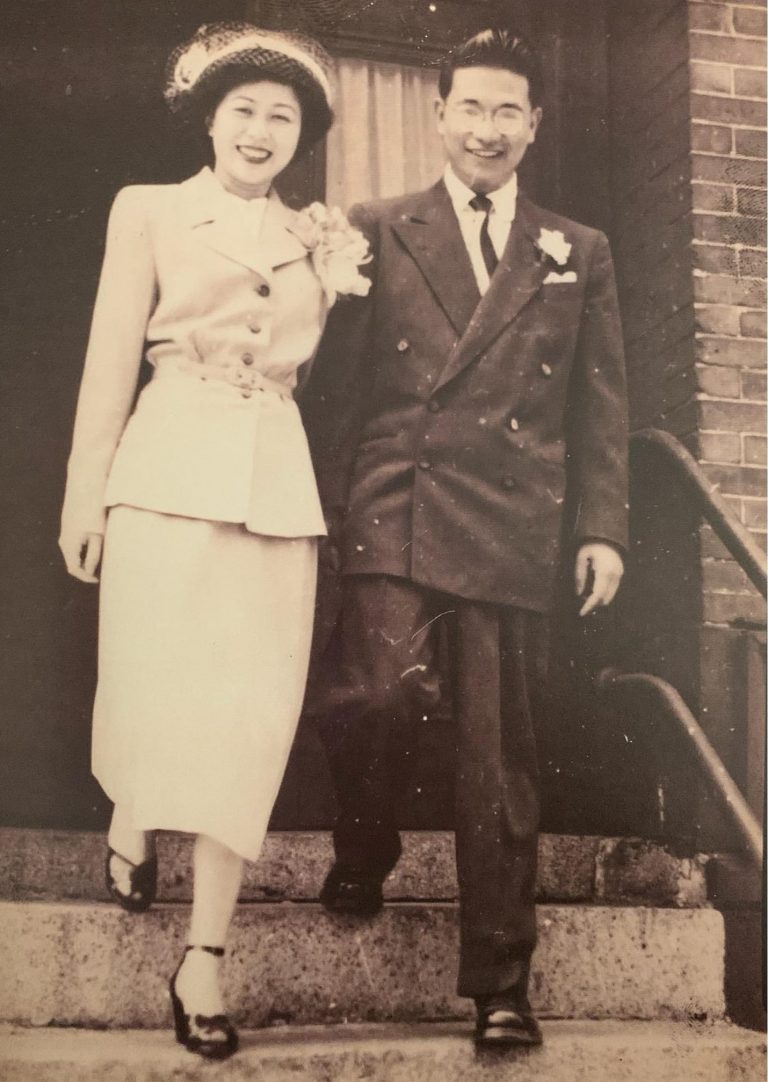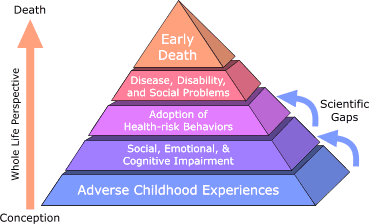

The image you see above may appear confusing. It looks innocuous enough. Maybe you are not sure what you are looking at. What is there is a sandwich. Not just any sandwich – a sandwich made with spam. With the cut up sandwich, memories from childhood. To me, spam was a sign of love. My maternal grandmother would be the one to prepare the sandwich for me. She would cut it similar to how I cut the above sandwich, except, hers was different. She would cut it cleanly, neatly, and slowly, then serve it to my brother and I in a way that showed how much she loved us.
This blog entry is a little unconventional, a sharing of food and how it relates to childhood memories and the feeling of being loved by my grandmother.

Above is a photo of my maternal grandparents, my “Who” and “Goung” on their wedding day. My Goung passed away when I was 16, so my memories of him are less than of my Who, who is still alive at nearly 100 years old. I think about my grandparents quite a bit, more so now that my children are older and it is more challenging for them to see their great grandmother and their grandparents.
Losing my grandfather was one of the hardest experiences I had. For years after, I struggled academically and socially. I had no name for that loss. I cried – a lot – and I wrote, a lot about the pain and loss of losing someone I loved dearly. To this day, I find it challenging to go into his room because a part of me continues to search for him.
A growing field of child development and public health is the term, “Adverse Childhood Experiences,” or better known as, “ACES.” The CDC defines ACES as “adverse childhood experiences that are potentially traumatic events that occur in childhood between ages 0 to 17 years of age). ACES include abuse, neglect, and also, loss (often of a parent or caregiver). The more “ACES” a child experiences before they are 17, the greater the risk for experiencing negative outcomes in adulthood, such as poorer physical and mental health, increase of substance use, and risky behaviors (CDC, 2016).

ACES continues to be an unaddressed public health crisis that is growing, more so now due to the lasting impacts associated with the COVID-19 pandemic. The past 1.5 years of social distancing, isolation, and quarantine, has increased the likelihood of children having significant adverse childhood experiences, increasing the number of mental health and behavioral issues.
It is why it is more important than ever to recognize that today’s children have suffered significantly with ACES. More children, by having to stay at home (or shelter in place), experienced an increase of abuse or neglect, and in many cases, traumatic loss of parents and other loved ones from the disastrous results of COVID-19 on their respective communities.
It should be noted that ACES are common. The CDC states that about 61% of adults surveyed in 25 states experienced at least one type of ACES, and 1 in 6 experienced four or more types of ACES.
The question is how some children are able to grow, mature, and become less likely to develop long-term health issues. It comes to both experiences and the type of support children receive during their formative years that makes a difference. It is a growing area that we as public health professionals must prepare for and to provide the necessary support and tools to help families and young children develop into adults.
It starts with learning about ACES and being committed to recognizing signs of it to help families in need. Then pursuing measures to improve health and development outcomes of families. What will you do and when?
More from Jackie Leung here.
Centers for Disease Control and Prevention. (2016). About the CDC-Kaiser ACE study: Major findings. Retrieved from https://www.cdc.gov/violenceprevention/acestudy/about.html.
BCPHR.org was designed by ComputerAlly.com.
Visit BCPHR‘s publisher, the Boston Congress of Public Health (BCPH).
Email [email protected] for more information.
Click below to make a tax-deductible donation supporting the educational initiatives of the Boston Congress of Public Health, publisher of BCPHR.![]()
© 2025-2026 Boston Congress of Public Health (BCPHR): An Academic, Peer-Reviewed Journal
All Boston Congress of Public Health (BCPH) branding and content, including logos, program and award names, and materials, are the property of BCPH and trademarked as such. BCPHR articles are published under Open Access license CC BY. All BCPHR branding falls under BCPH.
Use of BCPH content requires explicit, written permission.